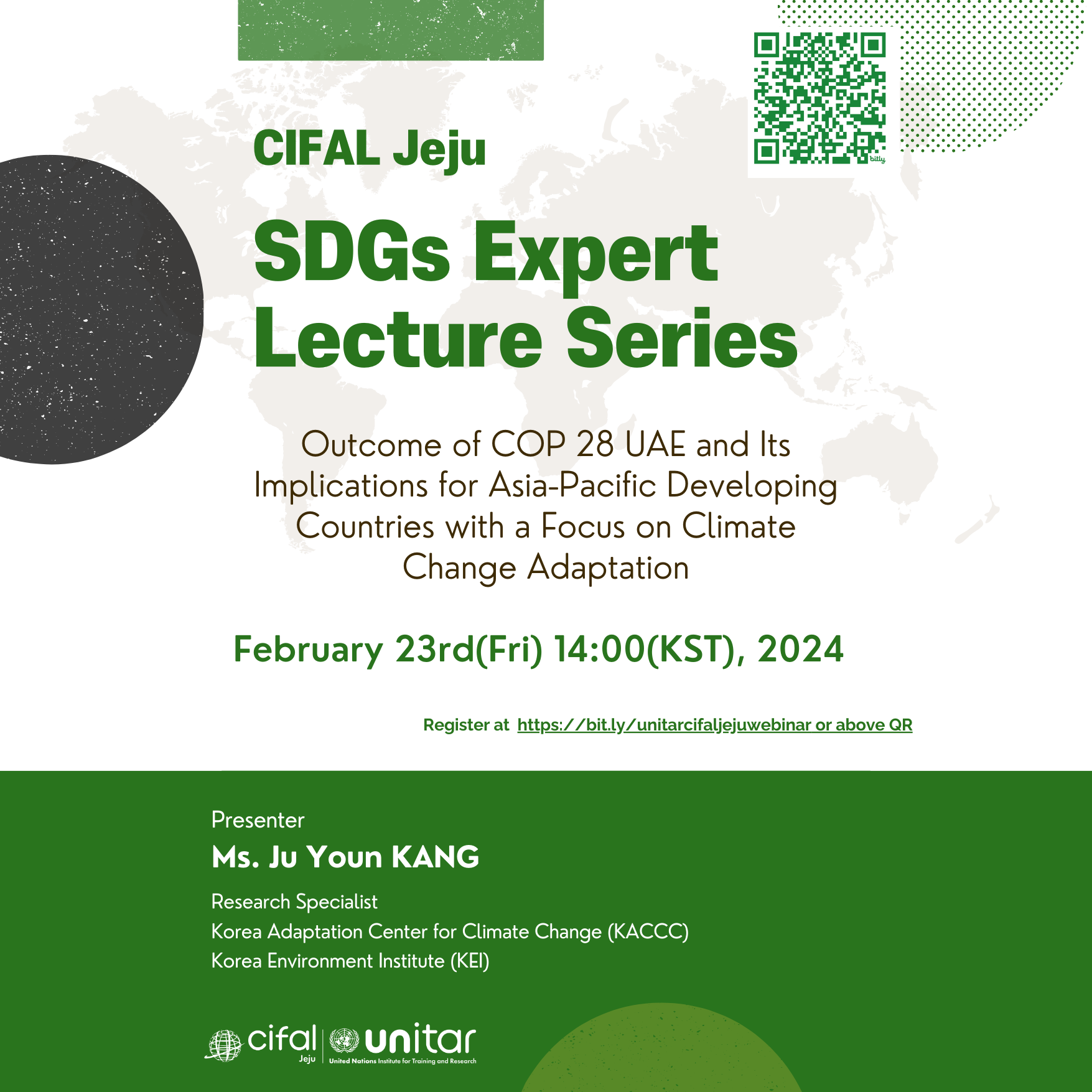Background
According to the UN Environment Programme, the world would experience warming of 2.9°C this century unless we dramatically reduce our greenhouse gas emissions promptly. And, this may bring catastrophic consequences for life on the Earth.
In response to a pressing sense of emergency, annual UN Climate Change conferences (COPs) are convened to bring together nations in the pursuit of solutions to the climate crisis. Last year November 30 to December 12, the 28th session of the Conference of the Parties to the United Nations Framework Convention on Climate Change (COP 28) took place in Dubai, United Arab Emirates.
With the unprecedented attention on COP 28 and its groundbreaking decision, the conference holds significant importance in the global discourse on climate. The event distinguishes itself as the first to draw a decision to "transition away from fossil fuels in energy systems," explicitly addressing the challenge of fossil fuels. Furthermore, the conference is recognized for its notable progress in providing support for developing countries. An agreement on the operationalization of loss and damage fund (commitments totalling USD 600 million) was successfully reached, which is promised to offer assistances to vulnerable developing countries and communities impacted by the adverse effects of the climate crisis.
Given the circumstances, CIFAL Jeju acknowledged the significance of sharing the results of COP 28 UAE and their implications for developing nations in the Asia-Pacific region, with a particular focus on climate change adaptation, which holds greater significance for these countries. This recognition led to the decision to feature it as the inaugural expert lecture series. The aim of this first lecture is to support our global-local leaders in taking a proactive stance and initiating additional responses and collaborative efforts to address climate-related risks with utmost seriousness.
This year’s newly launched ‘SDGs Expert Lecture Series' by CIFAL Jeju is designed to fulfill the mission of empowering Asia Pacific developing countries stakeholders to acquire knowledge on recent global sustainable issues. Thus, CIFAL Jeju could expand covered topics of the expert lectures from environment to other SDGs issues.
For this purpose, we are delighted to introduce our first speaker Ms. Ju Youn KANG, a Research Specialist at the Korea Adaptation Center for Climate Change of the Korea Environment Institute. Ms. KANG is a renowned expert with 15 years of climate change professional experience, has served as a vital member of the Korean delegation to UNFCCC and IPCC. She will give an online lecture on the topic of ‘Outcome of COP28 UAE and Its Implications for Asia-Pacific Developing Countries with a Focus on Climate Change Adaptation’. With her firsthand experience as a direct witness to COP 28, Ms. KANG will successfully help us walk us through COP 28 and its meaningful implications to the developing countries in the Asia Pacific region.
Organizers
UNITAR CIFAL Jeju / Jeju International Training Center
Venue
Online: Zoom (Registration-based)
Participant Qualifications
This webinar is open to governmental officials, decision makers of CSOs and NGOs, and representatives of private sectors and academia from developing countries in Asia Pacific region, who are professionally engaged in the climate policies, initiatives, projects, and businesses.
Application Method and Deadline
*Seat Priority could be given to attendees who meet the qualifications above.
*This workshop is not certificate bearing course.
Agenda (Tentative)
|
Session - Friday, February 23
Venue: Zoom
|
|
14:00 – 14:05
|
· Introduction of CIFAL Jeju SDGs Expert Lecture Series and Speaker
Hyunju Grace Lee, Program Officer, UNITAR CIFAL Jeju
|
|
14:05 – 14:10
|
· Opening Remarks
Director of UNITAR CIFAL Jeju
|
|
14:10 – 15:20
|
· Main Lecture Session and Q&A
Outcome of COP28 UAE and Its Implications for Asia-Pacific Developing Countries with a Focus on Climate Change Adaptation
Speaker: Ms. Ju Youn KANG, Research Specialist at Research Specialist at Korea Adaptation Center for Climate Change of Korea Environment Institute
|
|
End of Webinar
|
*The program above is subject to change.

 2024.05.29
2024.05.29

 2024.05.29
2024.05.29







